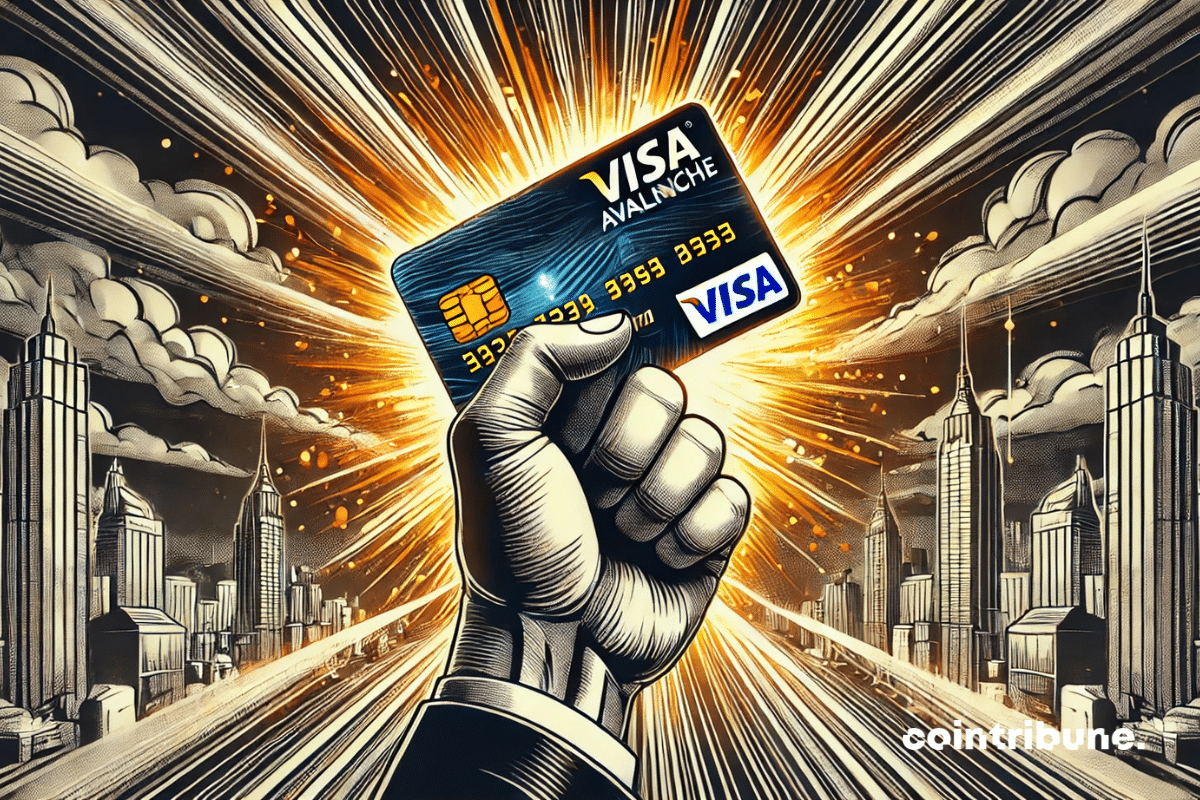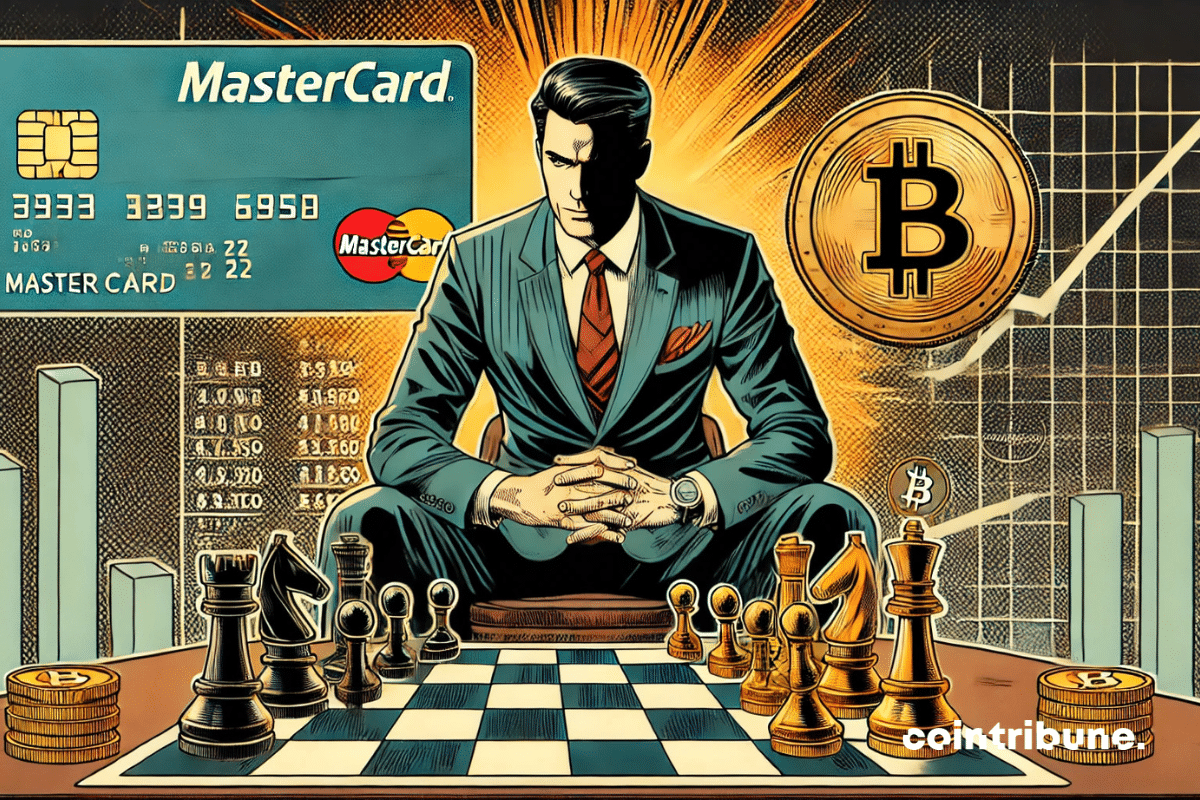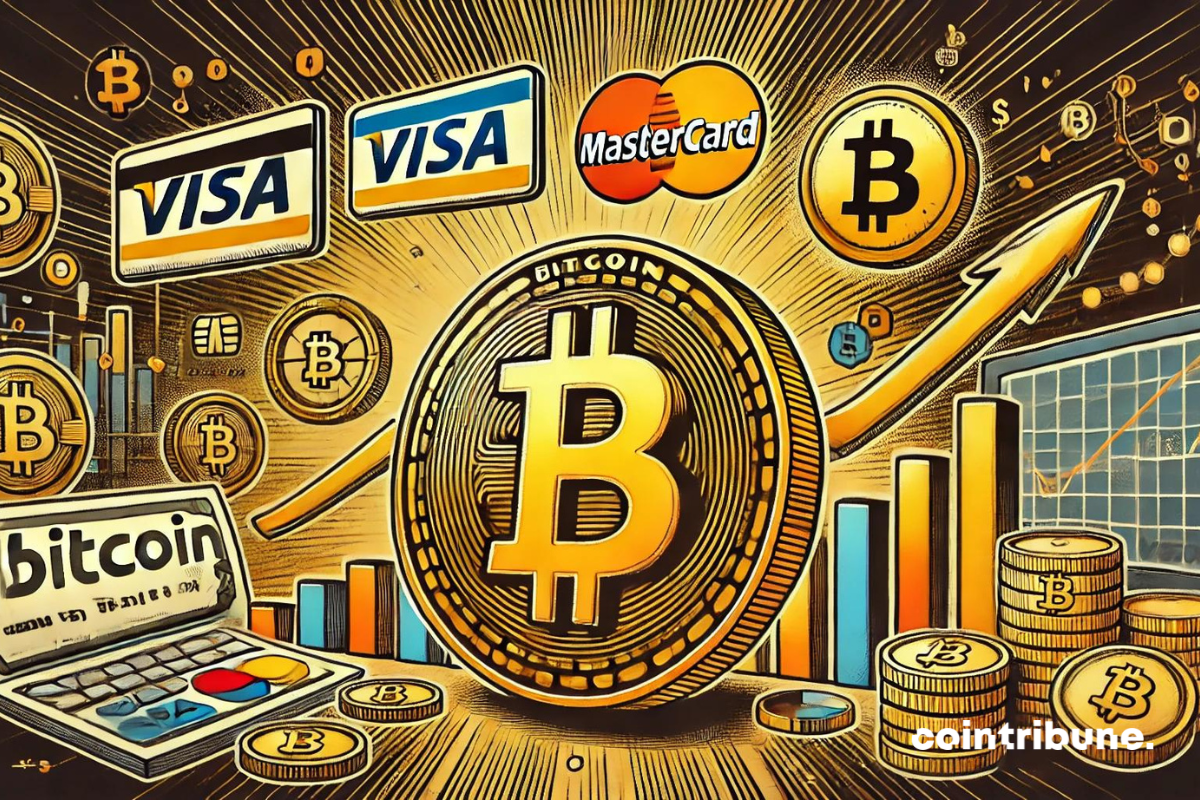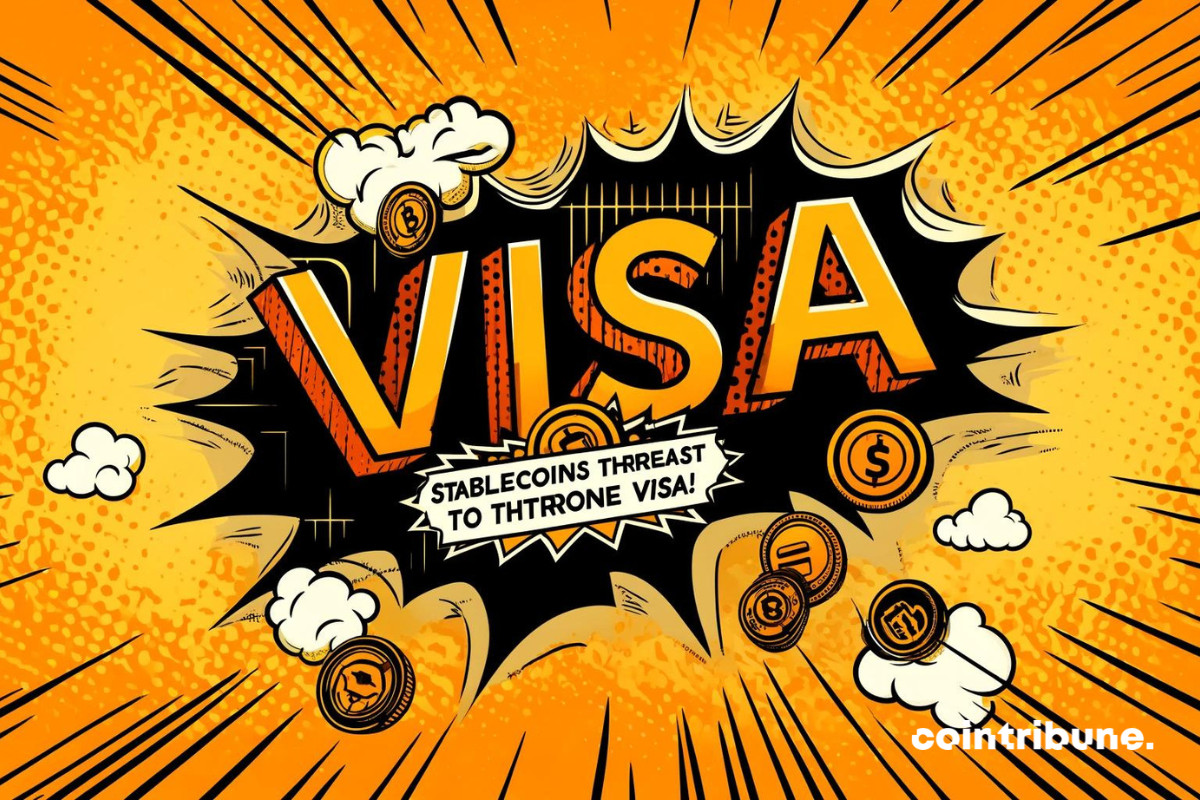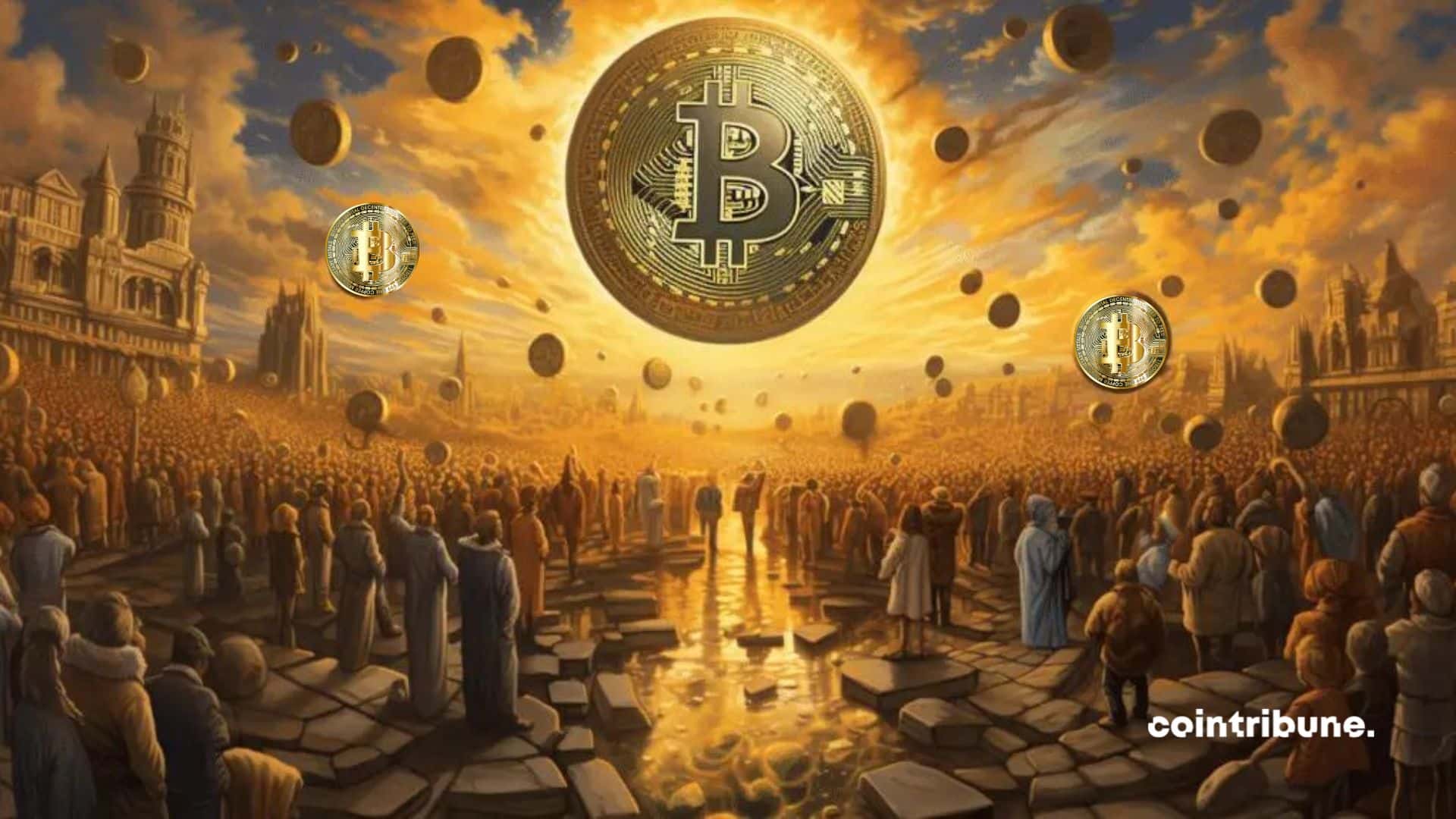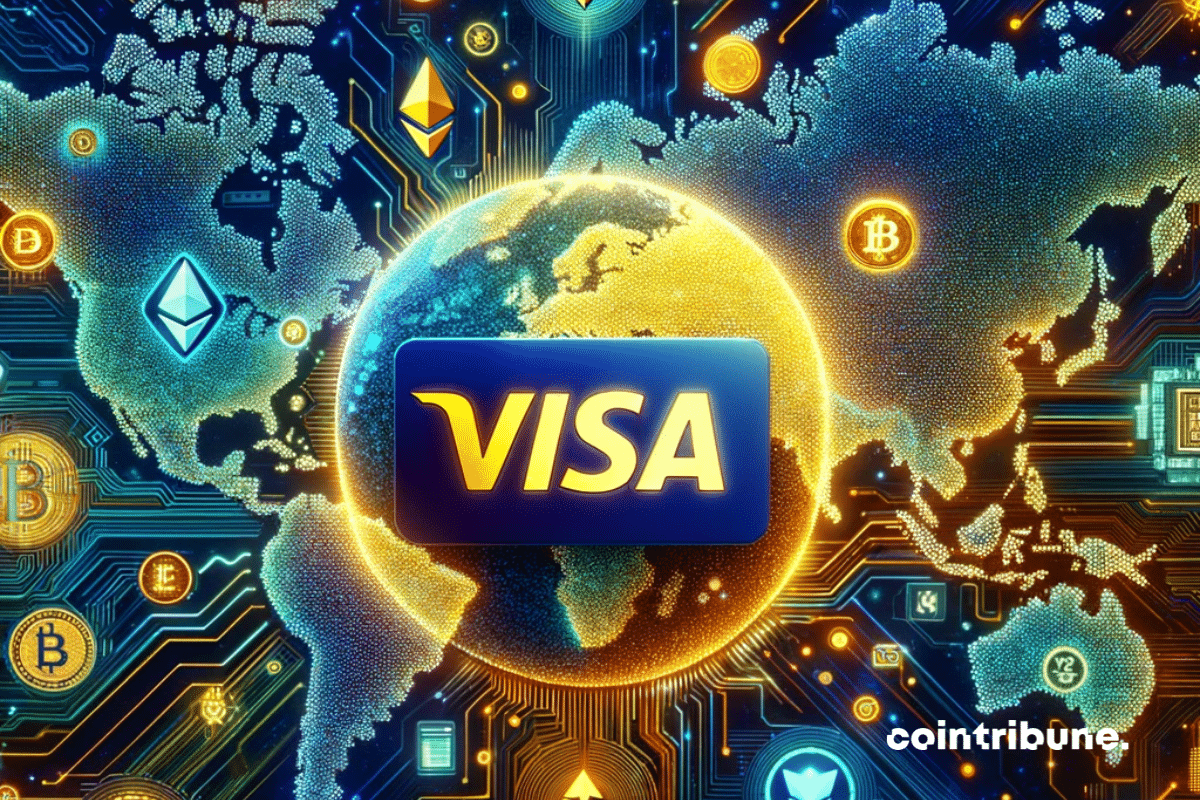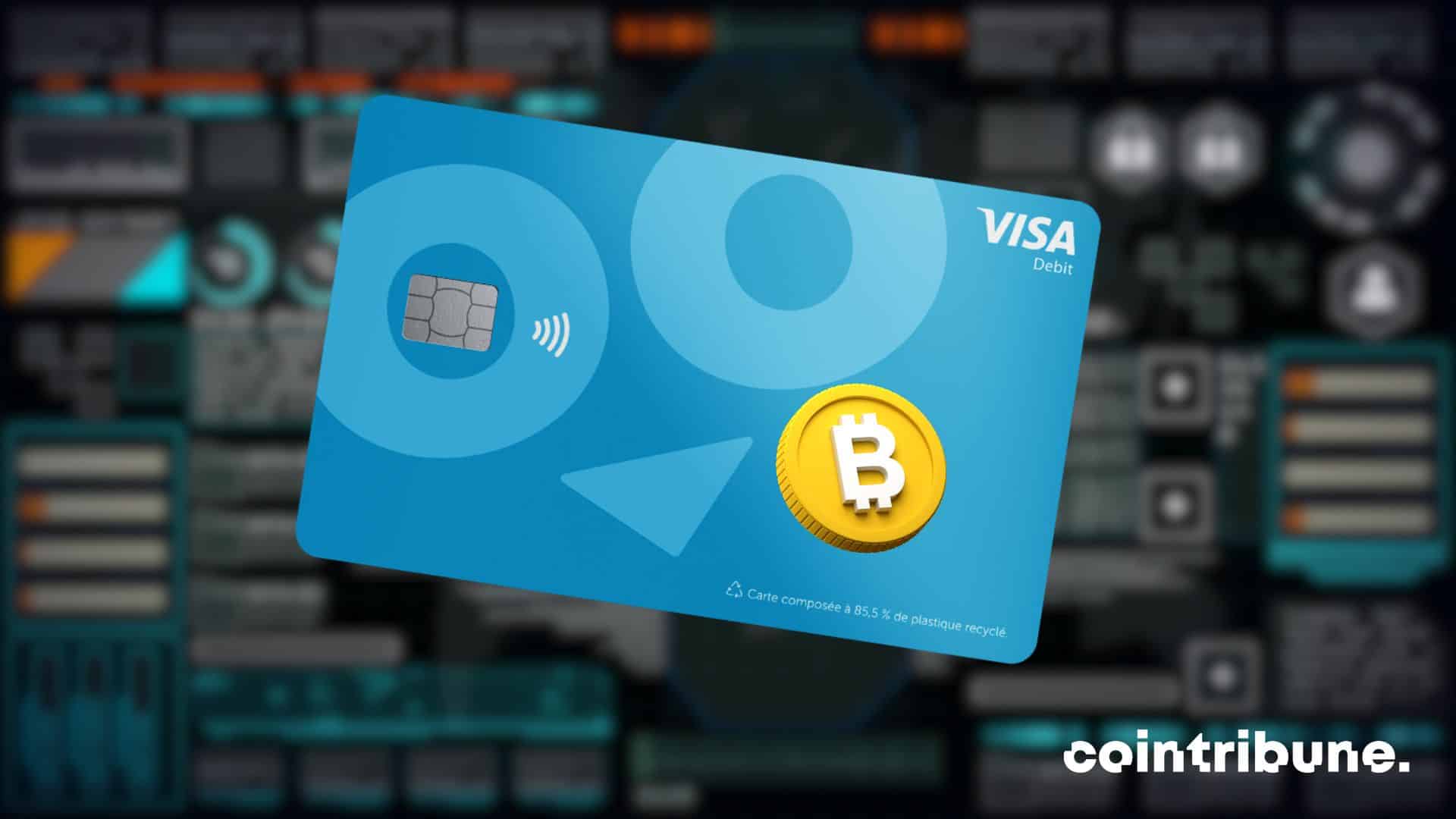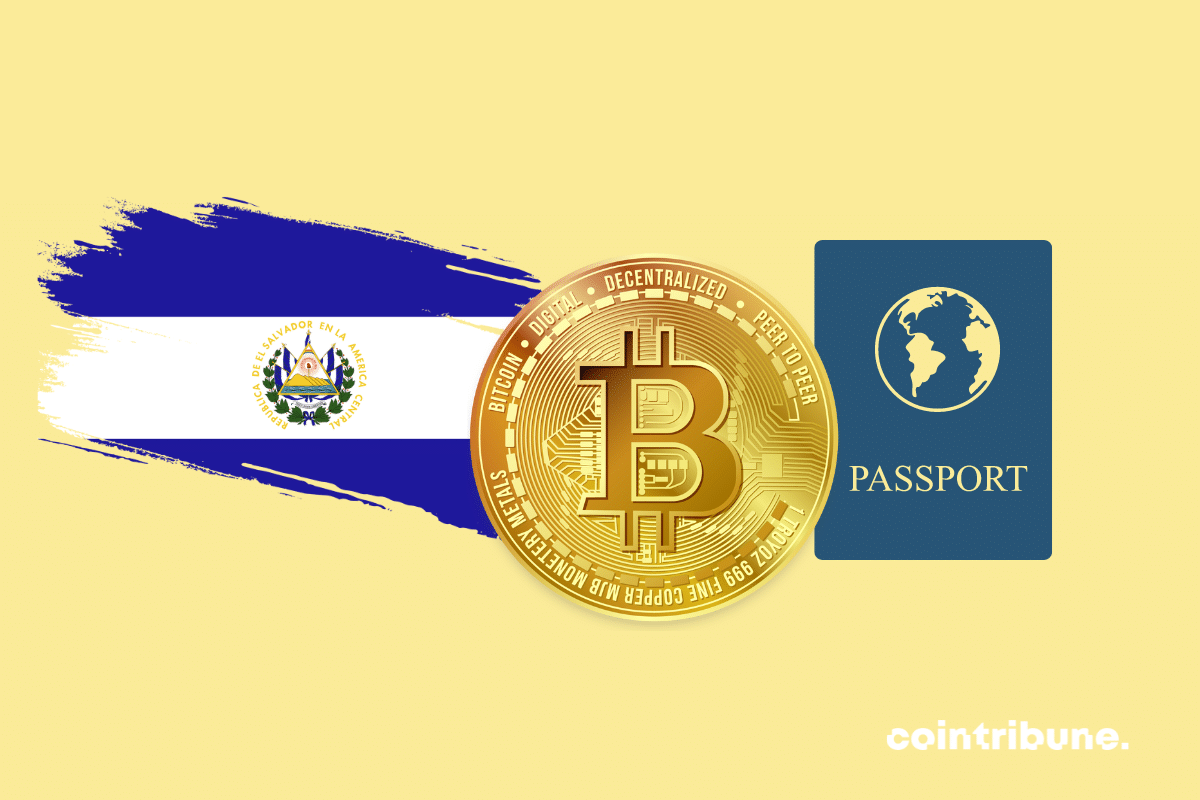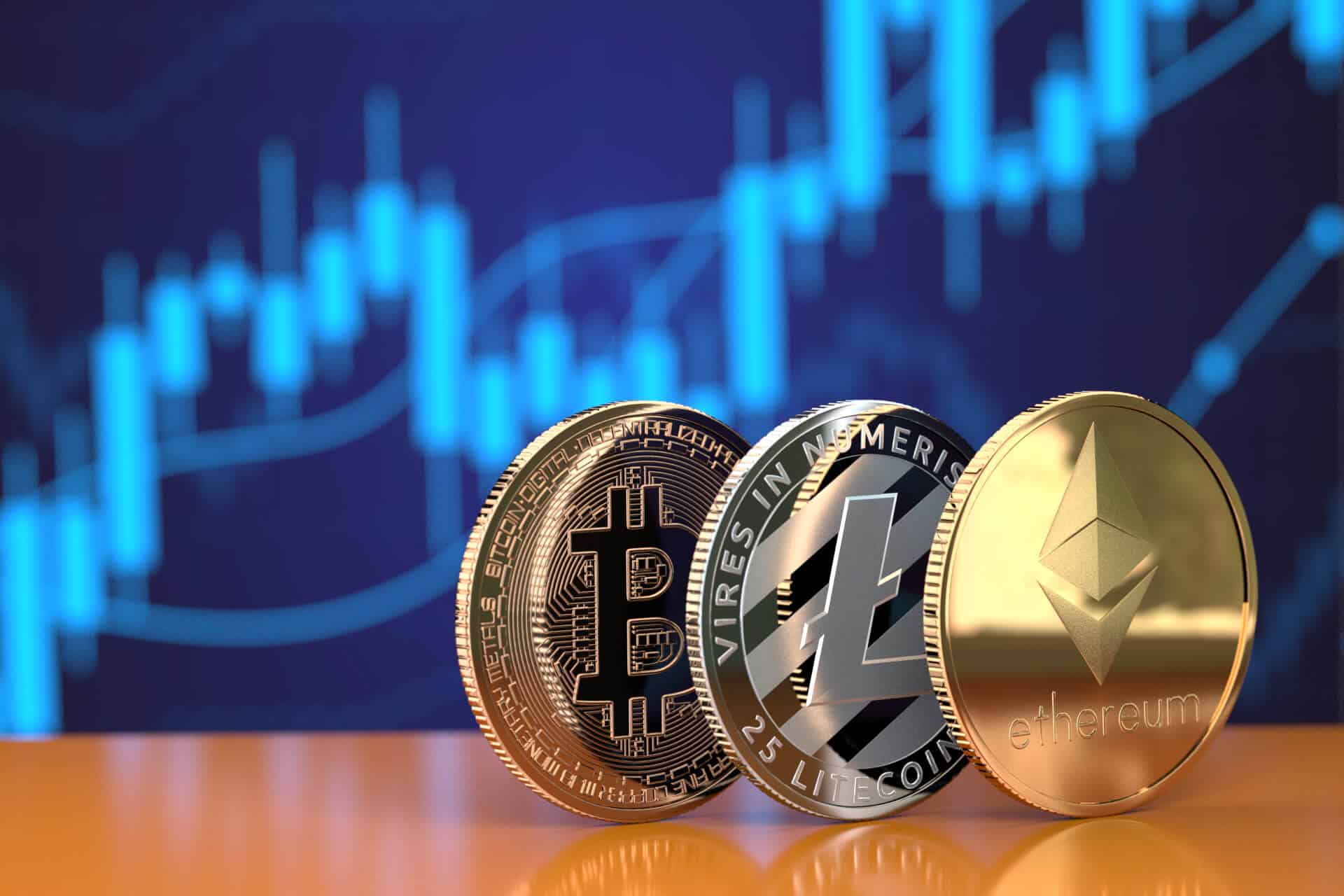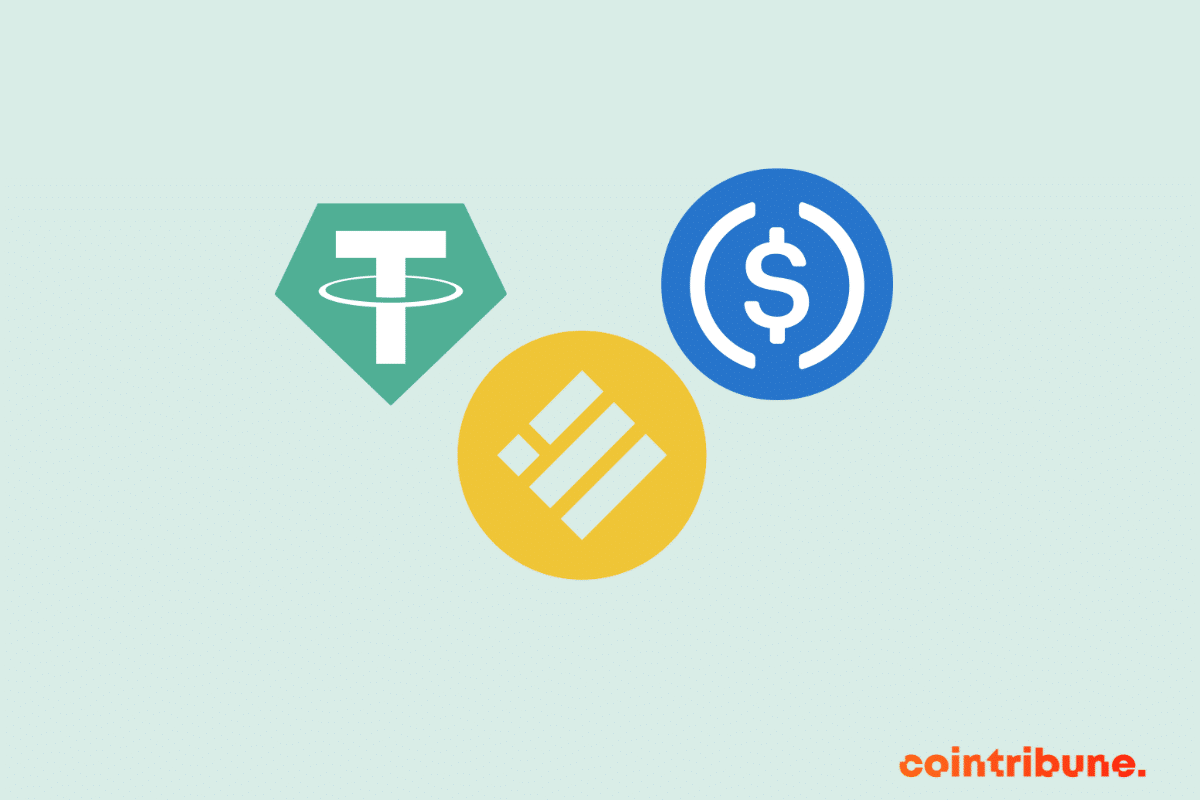The Avalanche Foundation, in collaboration with Rain, has just announced the launch of the Avalanche Card this Wednesday. This new card will allow users to spend their cryptocurrencies wherever Visa is accepted, with initial support for USDC, USDT, AVAX, and wAVAX.
Visa
The figure hits like a clap of thunder: 30% of Mastercard transactions are now tokenized. A silent revolution, almost sneaky, that redraws the boundaries of finance. Behind this percentage lies a strategic shift, a mockery of the skeptics. But this metamorphosis is just a prelude. The burning question is: what financial world emerges when a traditional giant embraces crypto to this extent?
Avalanche is launching a Visa card to pay with cryptos: finally a solution to spend your bitcoins at the supermarket!
Visa is going green with blockchain! BBVA is already preparing for a pilot in 2025 on Ethereum. The goal? To tokenize everything!
Visa and Mastercard, the undisputed leaders in card payments, are in the spotlight for their attempt to block the competition. According to a recent report, these two giants have spent millions to ensure they maintain their dominant position. But what is truly interesting is the impact this might have on…
Visa is launching a tokenized asset platform on Ethereum in 2025, providing banks with a new opportunity to access the crypto markets.
The world of digital finance has just reached a historic milestone. Bitcoin, often considered the digital gold, has surpassed Visa and Mastercard in terms of daily transaction volume, marking a major shift in the era of digital payments. This exceptional performance reflects the growing prominence of cryptocurrencies and their increasing integration into the global economy, challenging the very foundations of traditional payment systems.
Mastercard has just taken a new step in the world of cryptocurrencies. On May 29, the company announced the launch of the first peer-to-peer (P2P) pilot transaction of its innovative program, Mastercard Crypto Credential. This initiative marks a crucial turning point for cryptocurrency transactions, promising to simplify and secure international exchanges. Let's discover how this innovation will transform the landscape of digital transactions.
Stablecoins now seem to have the upper hand over their counterparts in the cross-border transfer scene. According to on-chain data, transactions made with these dollar-backed cryptocurrencies in April reached nearly $2.2 billion over the last 30 days. Based on this data, some experts predict that the volume of transactions in stablecoins could surpass that of Visa during the quarter. Shocked, Visa reacts and shifts the focus of the debate.
With a market capitalization approaching $1 trillion, Bitcoin has emerged in 2024 as one of the most significant assets in the world.
The giant of online payment Visa has once again made headlines. Through a strategic alliance with Transak, the platform makes crypto withdrawals via debit card accessible. 145 countries are affected by this development, which highlights Visa's commitment to promoting the sector.
The payment giant Visa is considering enhancing its customer relationship through the launch of a Web3 loyalty rewards system.
In a world where cryptocurrency is redefining the boundaries of the digital economy, El Salvador boldly positions itself at the forefront with its “Freedom Visa” program. This initiative, born from a partnership between the Salvadoran government and Tether, a cryptocurrency giant, promises to transform not only immigration but also investment in the country. As El Salvador is already famous for adopting bitcoin as legal tender, this new investment visa program raises important questions: is it a revolutionary innovation or a costly gamble for investors? In a context where investment visas are gaining popularity around the world and offer unique opportunities for wealthy investors, El Salvador's “Freedom Visa” stands out for its close connection with crypto.
From Bitcoin's meteoric rise, now surpassing Visa in transaction volume, to Binance's bold prediction about the demise of stablecoins in Europe, the news has been as varied as it has been impactful. Citigroup has also made a splashy entry into the crypto world, while the Ethereum ecosystem faces turbulence with the rejection of its Shanghai upgrade. And the FTX case, nearing its resolution, marks a pivotal moment for millions of investors. Dive with us into this weekly roundup to stay informed about the significant events of the past week.
Several reports on the performance of dollar-backed digital currencies suggest that crypto wallets containing stablecoins will eventually replace credit cards. The appetite for dollar-backed stablecoins in payments is increasingly surprising, and could even pose a threat to the business model of traditional payment companies such as Visa, PayPal and MasterCard. What do traditional payment companies have to say about this silent competitor?
